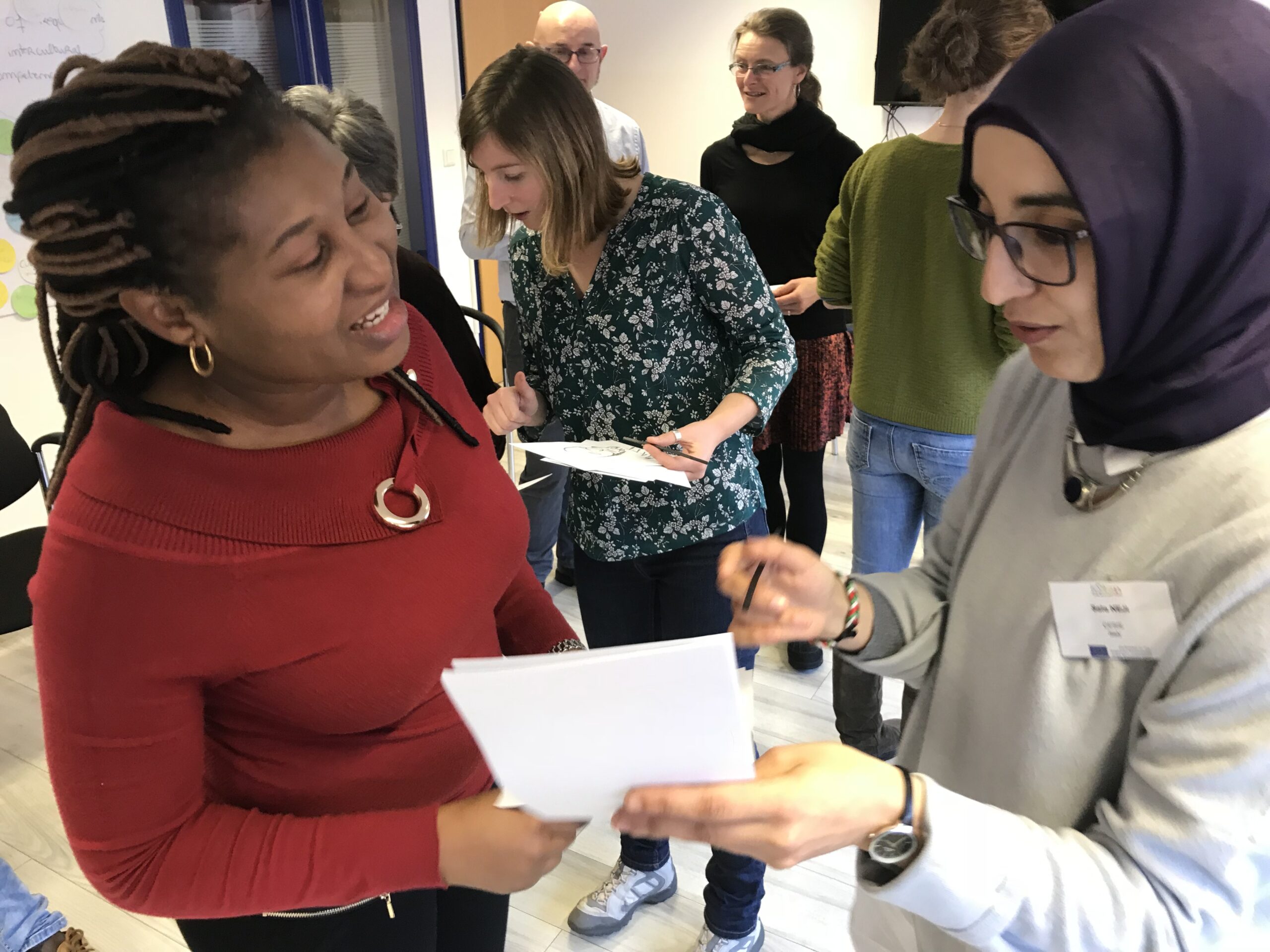Description
In an increasingly
intercultural and diverse society, social and health care institutions face new
challenges and tasks. Management and staff encounter people from a variety of
different cultures in their daily work and may encounter intercultural
(communication) challenges that go beyond language difficulties. In the care
sector, intercultural difficulties may arise with regard to unfamiliar
behaviour and values in questions of education, nutrition, hygiene and health,
with foreign communication styles, other (gender) role understandings, but also
with regard to the understanding of time. Also the care teams themselves are
also increasingly characterised by intercultural diversity. In order to
facilitate interaction and avoid misunderstandings, intercultural communication
and action skills are helpful here - they save time and energy and avoid
problem situations in advance. These competences are to be (further) developed
in the training in a practical way and with the inclusion of the participants'
experiences from their everyday professional life.
The course will take place in Göttingen in
December. During this time the famous Christmas market is open. A visit of the
Christmas market is included in the programme.
Tentative Program & Schedule
Introduction (Day 1):
·
Welcome, introduction
·
Introductory exercise
·
Discussion
What is culture? What is culturally sensitive care? (Day 1):
·
Basic terms and concepts
·
We find out what
constitutes our culture / cultural identity through excercises and role plays
·
We get to know the most
important basic terms and models of culturally sensitive care
Intercultural communication (Day 2):
·
We work out possible
hurdles in intercultural communication and learn ways to overcome them (Dialogue/Film,
Pictograms, Theory input, group work)
Cultural differences in the perception of pregnancy, parenthood and childhood and family (Day 3):
·
We work out culturally
different ideas and values on pregnancy, parenthood and childhood and family
through questionnaires and case studies
Nutrition in an intercultural context (Day 4):
·
We expand our knowledge
about different diets and related cultural constructs
·
Vistit of the Göttingen Christmas
market
Case studies from everyday life in the care context
(Day 5):
·
We analyse case studies
from social and helath care.
·
We talk about our own
experiences and examples
Expected Outcome
- increased intercultural competence
-increased knowledge about different cultural
backgrounds
- increased communication skills
- new contacts and ideas
Certification
You will receive a certificate for participation and a
"Level 5" competence development certificate.
Venue address
Am Leinekanal 4
37085 Göttingen
Germany
blinc e.G.
Address
Am Leinekanal 4, 37073 Göttingen
Website URL
https://blinc-eu.org/
Contact persons
Garrett Hubing





